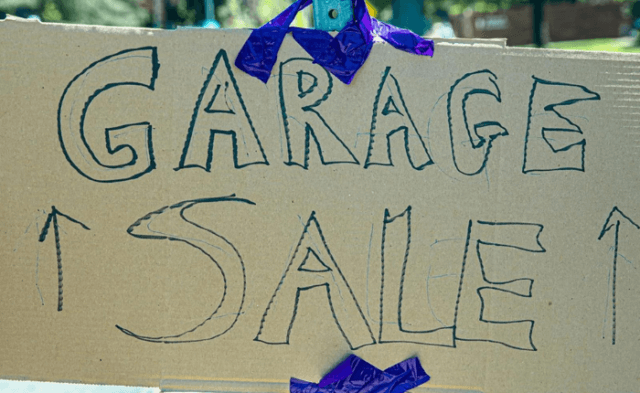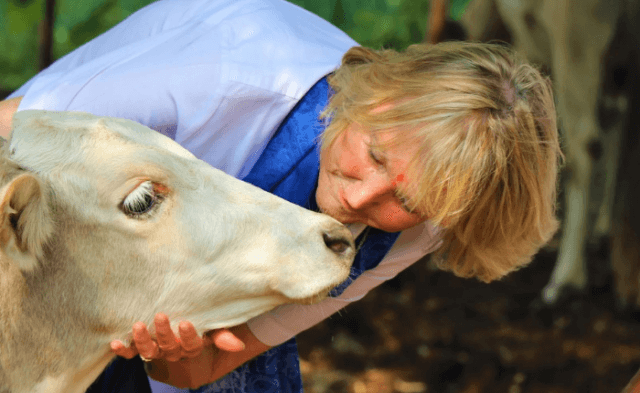With the Kentucky Derby upon us, there is little chatter about the contenders. The question this year is not “Who will win?” but “Who will die?” Last year, 12 horses lost their lives at ChuThis is a sorry state of affairs for the horse racing industry and the animals it uses. Although the industry has taken baby steps over the past decade to improve the chances of survival for thoroughbreds, racing remains a deadly game, and with every broken leg, more people-including racegoers-turn their backs on the track.
This is a sorry state of affairs for the horse racing industry and the animals it uses. Although the industry has taken baby steps over the past decade to improve the chances of survival for thoroughbreds, racing remains a deadly game, and with every broken leg, more people-including racegoers-turn their backs on the track.
One key reason for the high fatality rate is the insistence by racing’s old guard that no one knows better how to treat horses and that they just need to convey to the public how much they love their horses.
But racing doesn’t have just an image problem. It has a reality problem. All the ads, testimonials and other public relations efforts won’t erase the image of what happened to Lost in Limbo, who died at Churchill Downs on May 26 last year-the 11th horse to die there in just one month. Nothing says love like a mangled horse being trucked away for euthanasia.
Here’s my plea to racing: Do right by the horses. Stop ignoring-or worse, defending-what you know is wrong. You’re dealing with living, feeling beings, and if you can’t put their welfare above your pocketbook, then get out of the game. Case in point: Naïve and physically immature 2-year-old thoroughbreds shouldn’t be forced to sprint faster than they will ever run again in their lives just to drive up prices at auction. It leads to abuse, injury and often, death.
These under tack shows, as they’re called, have been criticized by many people in racing. But rather than risk losing income, the auction companies risk horses’ lives. And they go to great lengths to hide it. Just last month, an executive at Ocala Breeders’ Sales assaulted and stole the backpack from a PETA investigator who was legally videotaping the euthanasia of a young horse who had crashed into a rail on the track. The exec was charged with robbery, and the horse never got up again. PETA is calling for cruelty-to-animals charges.
Racing should ban repeat offenders and those who abuse horses. The trainers of horses found with methamphetamine in their bodies shouldn’t get a second chance. A trainer who beats a horse should be permanently barred from all tracks. And trainers who repeatedly violate medication rules show that they don’t deserve a place in racing. “Punishing” offenders with a fine and a suspension is like issuing a parking ticket for vehicular manslaughter.
Every time a U.S. thoroughbred is sold to a country in which the final scene in the horse’s drama takes place at a slaughterhouse, the racing industry is thumbing its nose at the public it hopes to bring to the track. PETA’s undercover footage from inside South Korean and Japanese horse slaughterhouses exposes thoroughbred owners’ attempts to cover up this ultimate betrayal of the animals they supposedly love.
Perhaps most importantly, the racing industry must listen to the horses.
People in racing tell me that most thoroughbreds suffer from ulcers caused by overmedication. Our own undercover investigation revealed they are routinely administered sedatives to calm them down because simply living at a track is so stressful. When their joints are injured and painful, they’re shot up with corticosteroids that can mask injuries and lead to fractured bones. If they’re prone to bleeding from the lungs due to the intense physical pressure of racing, in many races it’s permissible to administer a debilitating diuretic to try to prevent it.
When the cure is worse than the affliction, when horses are physically and psychologically burned-out before their bodies are even fully mature, these animals are sending a powerful message that those in racing don’t want to hear.
Fail to listen at your own-and the horses’-peril.





